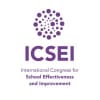GKI is a new type of non-profit organization focused on maximizing what’s available to solve pressing global development problems like food insecurity, environmental degradation, and disease control and prevention. As a global community, they are poised to take on these complex issues. But to do so they need to confront what’s prevented so many previous well intentioned efforts from succeeding at scale. GKI believes it is not a failure of intellect, nor a lack of resources, that keeps them from solving complex, global development challenges. Rather, the failure lies in how they connect committed individuals and their resources—technologies, expertise, financing—to fill these gaps. GKI believes they need better methods for connecting the resources they have – experts, technology, knowledge – to the people and places that need them most. Collaborative Innovation is all about bridging those gaps and helping people connect so that they can do more with less: more problem solving, more knowledge sharing, more life changing.
GKI builds purpose-driven networks to deliver innovative solutions to the world’s most pressing problems. They thrive on creating the enabling environment, the mindset, and the tools that make Collaborative Innovation possible.
Specifically, they help innovators locate resources critical for problem solving; enable effective collaboration by building skills and designing shared agendas; and connect resources and partners into durable networks; all to solve pressing problems and create shared value.
Approach
GKI’s unique way of working sets them apart. As an organization, they:
Leverage Diversity: They see value in an array of perspectives and ideas, and know that they enrich the problem solving strategies their networks pursue.
Engage Meaningfully: They use facilitated experiences to connect partners and propel purpose-driven networks.
Take a Systems Perspective: GKI knows development challenges do not occur in a vacuum. They examine challenges through a systems lens to understand the many interconnected and constantly changing pieces before designing problem-solving strategies.
Iterate and Learn: They emphasize feedback loops and continuous learning across their programs. A learning-while-doing organization, GKI knows that getting better, in part, means getting smarter about both failures and opportunities.
